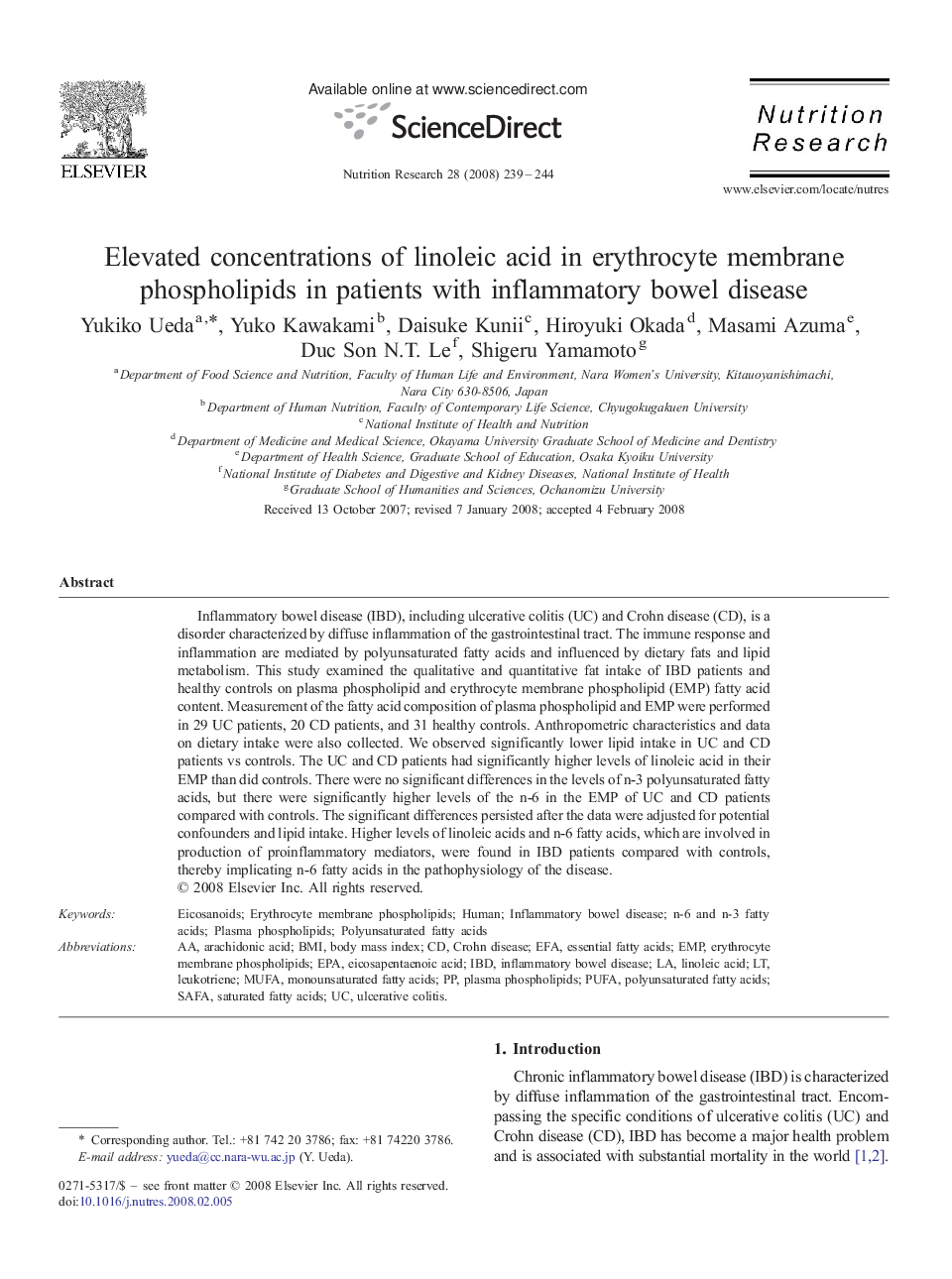| Article ID | Journal | Published Year | Pages | File Type |
|---|---|---|---|---|
| 2809537 | Nutrition Research | 2008 | 6 Pages |
Inflammatory bowel disease (IBD), including ulcerative colitis (UC) and Crohn disease (CD), is a disorder characterized by diffuse inflammation of the gastrointestinal tract. The immune response and inflammation are mediated by polyunsaturated fatty acids and influenced by dietary fats and lipid metabolism. This study examined the qualitative and quantitative fat intake of IBD patients and healthy controls on plasma phospholipid and erythrocyte membrane phospholipid (EMP) fatty acid content. Measurement of the fatty acid composition of plasma phospholipid and EMP were performed in 29 UC patients, 20 CD patients, and 31 healthy controls. Anthropometric characteristics and data on dietary intake were also collected. We observed significantly lower lipid intake in UC and CD patients vs controls. The UC and CD patients had significantly higher levels of linoleic acid in their EMP than did controls. There were no significant differences in the levels of n-3 polyunsaturated fatty acids, but there were significantly higher levels of the n-6 in the EMP of UC and CD patients compared with controls. The significant differences persisted after the data were adjusted for potential confounders and lipid intake. Higher levels of linoleic acids and n-6 fatty acids, which are involved in production of proinflammatory mediators, were found in IBD patients compared with controls, thereby implicating n-6 fatty acids in the pathophysiology of the disease.
